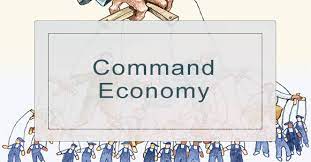
Command Economy’s Impact on Private Citizens
In the tapestry of economic systems, a command economy stands out as a unique framework that directly influences the lives of private citizens. This system, characterized by centralized control and government intervention, significantly shapes the way individuals experience and interact with their economic environment. One profound way a command economy affects the lives of private citizens is through its control over resource allocation, production, and consumption.
Understanding the Command Economy
A command economy, often associated with socialist or communist ideologies, is an economic system where the government holds substantial control over economic activities. In this system, central authorities make key decisions regarding production levels, distribution of resources, and pricing of goods and services. While the intention behind a command economy might include achieving equitable distribution of wealth and minimizing economic disparities, its effects on private citizens are complex and multifaceted.
Impact on Private Citizens: Allocation of Resources
In a command economy, the allocation of resources is largely determined by government directives rather than market forces. This centralized control can have a profound impact on private citizens‘ lives. The government decides what goods and services will be produced, how much will be produced, and for whom they will be produced. As a result, private citizens may find themselves limited in their choices and preferences.
Limited Consumer Choices

One way a command economy directly affects private citizens is by restricting the variety of goods and services available in the market. Since production decisions are centralized, there may be a limited range of products to choose from, and the diversity that a market-driven economy offers may be curtailed. Private citizens might find themselves with fewer options for clothing, electronics, entertainment, and other commodities that they might otherwise enjoy in a more market-oriented system.
Shortages and Surpluses in the Command Economy
In a command economy, the government’s central planning can lead to imbalances in supply and demand. For instance, if the government decides to produce more of a certain product due to perceived societal needs, there might be a surplus of that product in the market. On the other hand, goods and services that are not deemed priorities might experience shortages. Private citizens may face challenges accessing essential items due to these imbalances, impacting their quality of life.
Influence on Employment Opportunities for Private Citizens
In a command economy, the government’s control over production extends to employment opportunities. Since production decisions are made by central authorities, labor needs are determined by these decisions rather than market demand. As a result, private citizens’ employment options can be limited to the industries and sectors that the government prioritizes. This can lead to underutilization of skills and talents, as individuals may be compelled to work in fields that don’t align with their interests or expertise.
Impact on Entrepreneurship and Innovation

Entrepreneurship and innovation often thrive in market-driven economies where competition fosters new ideas and solutions. In a command economy, however, the centralized control can stifle innovation. Since production plans are dictated by the government, there might be less incentive for individuals to take risks and innovate. As a result, private citizens might experience a lack of diverse and innovative products and services that could improve their quality of life.
A Complex Tapestry of Command Economy
In the realm of economic systems, a command economy exerts a powerful influence on private citizens’ lives by shaping their access to goods, services, and employment opportunities. While it aims to address economic inequalities, the centralized control inherent in this system can lead to limited choices, imbalances in supply and demand, and restricted innovation. Understanding the intricate ways in which a command economy affects individuals is crucial for fostering meaningful discussions about economic systems and their impact on societies.

Leave a Reply